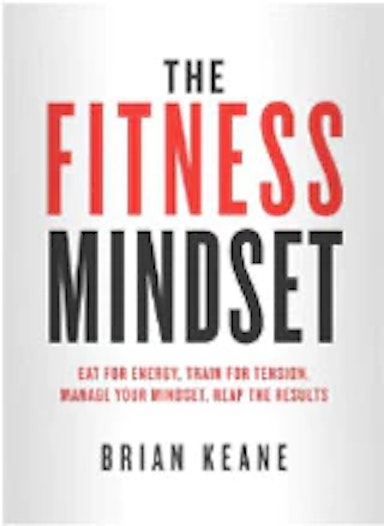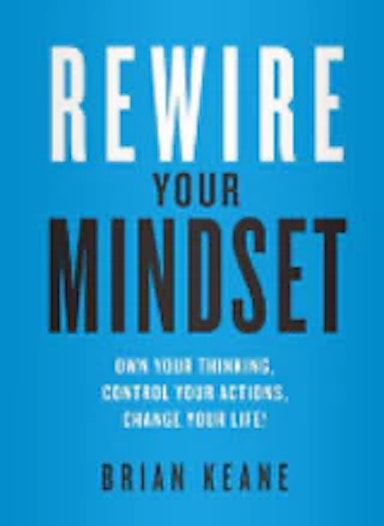18 Things To Do For Anxiety (and 3 Things To NEVER Do)
- By Brian Keane
When it comes to anxiety, sometimes subtraction is the best way forward.
Removing, limiting or slowly and gradually exposing yourself to the causes, triggers or environments is generally pretty good advice.
However for me, I found that I had to add some things to really get control of my daily anxiety.
Some of these will be obvious, others not so obvious; but hopefully they all help or serve as a guide or permission for further exploration.
1: Journal
Personally, I found a gratitude journal worked best for rewiring my mindset to focus on the more positive elements of my life (as opposed to the default negative framing that is hard wired in a lot of us).
I didn’t use anything fancy either, just a normal note pad and pen where I documented 3-5 things I was grateful for that day.
2: Do something you love
This is normally advice you would see on the opposite end of the anxiety/depression spectrum; but I find it works just as well for anxiety and focusing on being in the present.
Anxiety is normally routed in thoughts of the future; so doing something that you love puts you into a daily ‘flow’ state that could work wonders.
For me it’s working out or some form of physical activity.
Yours might be reading, watching a favourite TV show or just having some alone time in nature.
Experiment until you find what works for you.
The term “flow state” describes a mental state in which a person is completely focused on a single task or activity. They are directing all of their attention toward the task, and they do not experience many thoughts about themselves or their performance. Some people refer to this informally as being “in the zone.”
3: Workout regularly
Even if you don’t like to work out, the physical exertion can force you into the present moment which can help your anxiety.
If you need a workout idea, here is a HIIT session from my YouTube channel that you can try.
4: Walk more
Are you starting to see a trend?
Movement can help you clear your head, get clarity on your thoughts and can habit stack with a podcast or audiobook if you really need to switch off.
5: Minimise processed foods
Garbage in, garbage out.
If you eat too much food devoid of nutrients, you’ll feel the energy slump and low mood that can come from a disrupted gut microbiome.
For more on this, check out the nutrition section in my fist book The Fitness Mindset.

6: Meditate
Up until recently, this is the one that I have struggled with the most.
Mediation is grounded in being present, the same way that exercise is grounded in movement.
However, there is a big difference when you compare the physical act of running vs weight lifting or cycling vs playing field sports.
Mediation has different types as well so you need to experiment until you find what works for you.
Personally I use music and a focus on a primary image in my mind (it can be anything I choose).
Every time my mind wanders, I bring it back to the image.
It took me years until I found the right fit for me. Now, I try and do it several times a week or whenever I need it most.
7: Take a probiotic
If you have a gut microbiome imbalance from too much stress, poor eating habits or a recent course of antibiotics, you may need an extra strength probiotic to repopulate it.
The gut provides approximately 95% of total body serotonin* aka your happy hormone.
I use Udos’ choice Super 8 Gold (no affiliate); but it’s the best one I’ve found.
8: Sleep well
Studies show people who are sleep deprived report increases in negative moods (anger, frustration, irritability, sadness) and decreases in positive moods**
If you have ever snapped at someone after a poor nights kip then you will be very familiar with this.
Try and focus on 8-9 hours each night.
9: Track your recovery
I have a confession. I am a chronic over trainer.
One of the reasons I gravitated towards bodybuilding competitions and then endurance races was the intense training load.
I loved that I needed to train upwards of 3 hours+ a day to hit a goal; but alas, the excessive cortisol (stress hormone) from all that training wreaked havoc on my mental health.
I still push it hard on a regular basis; but now I take the time to adequately recover and listen to my body.
I do this by a combination of checking in with how I’m feeling mixed with using the WHOOP fitness wearable.

10: Have a cold shower
I inadvertently found this in 2019 when I was training to run through the Arctic.
At the time I was using ice baths; but have since continued with regular cold showers.
The theory is that cold showers may work by increasing endorphins, or the feel-good hormones in your brain.
Endorphins can ease symptoms of depression and anxiety.
Cold water may also decrease cortisol, a stress-inducing hormone.
The scientific mechanism to why is works is a little sketchy at the minute and mostly linked to depression*** – but one thing that is widely agreed upon anecdotally is that it works tremendously well for anxiety too.

11: Get into a sauna
If ice or cold is one tool. Heat can be another.
If you can’t access a sauna for 10-20 minutes several times a week, try a hot bath at night time instead.
12: Have sex good sex
Yup. I don’t think I could compile an anxiety list without including the one thing that the majority of us know forces us into the moment.
Unless it’s bad sex, in that case, you normally want to be anywhere else but let’s change ‘have sex’ to ‘have good sex’ as a tool for dealing with anxiety.
13: Write down what’s bothering you
There’s a mental catharsis that comes from writing your problems out on a piece a paper.
You may even want to go a step further and use a perspective technique of putting your problems in a metaphorical pile with other people around you or in the world in general.
Normally when I do this and compare some of the genuine hardship some people are going through, I don’t be long wanting to take my own problems back.
Of course this only works with day to day struggles as opposed to traumatising or life altering events ; but it can be an effective tool nonetheless.
14: Talk to a friend
My mum used to tell me that ‘a problem shared is a problem halved’ – a good support network is crucial for dealing with anxiety.
If you don’t have that, then you may need to go a step further.
15: Book in with a therapist
A professional that can hold the space for you and allow you to be vulnerable may be the thing that you need to get the root of your anxiety.
I’ve used several in the past, some better than others but they all thought me lessons in their own unique ways.
16: Tell someone close to you that you love them (and mean it)
Again, it’s a perspective shift.
It’s a more actionable version of gratitude journaling as you verbally shift your mindset from an anxious state to a high energy frequency.
It can be difficult to do, especially if emotional sharing is something you are not programmed to do; but like everything, the more reps you put in, the stronger you get and the easier it becomes.
17: Watch your favourite movie (or sport)
It’s pure escapism but sometimes you need to disconnect to reconnect.
18: Read books on anxiety
I’m obviously biased to my first two books – The Fitness Mindset and Rewire Your Mindset as both discuss anxiety but I would also recommend looking into Dale Carnegie ‘how to stop worrying and start living’ and if you need to understand the brain or amygdala neuroscience of anxiety, then Rewire Your Anxious Brain Catherine M. Pittman and Elizabeth M. Karle is a good shout.
Now, to the three things to NEVER do to deal with your anxiety.
1: NEVER comfort eat
Or more accurately, be mindful of emotional eating.
This also isn’t to be confused with ‘don’t eat your favourite foods’ – if you love pizza, you should definitely eat it.. sometimes.
However, when food becomes a coping mechanism for changing your emotional state (anxiety in this case) that’s when the seed for future problem becomes planted, so nip it early.
If you’re not 100% sure of the difference between emotional hunger and physical hunger, check out the table from my last book The Keane Edge, Mastering The Mindset For Real Lasting Fat Loss!

2: NEVER complain to other negative people
Complaining is the emotional nourishment of a negative person.
There is a time and place for venting after something has annoyed or upset you but venting is different from complaining.
Venting is a short term release to get something of your chest, complaining is when that short outburst extends in duration.
My mum used to tell me that if you lie down with dogs, you get flees; so be careful of feeding a negative person with their emotional nourishment as there’s a good chance they will, or worse, you, will become addicted to that default.
The habit forming dopamine rush of complaining is addictive so be careful of where your share it and how often.
3: NEVER think it will go away by itself
I’m calling out my 25 year old self here.
I immaturely assumed that I would ‘outgrow’ my previous ten years of anxiety.
Then as if the universe was sending me signs, I would encounter person after person in their mid-thirties, mid-forties and some cases mid-fifties who were still plagued my anxiety.
That’s when I knew that I had to do something about it.
This list is a compilation of all the things that I do; and have to done to help me on a daily basis.
I always think of anxiety like sweeping the floor. You can sweep the floor today and it will be clean but if you leave it for a few days, a week or a month, it gets dirty again.
Managing your anxiety is the same; so hopefully this list gives you the tools you need to keep the figurative floor clean day to day.

References:
*Gut: https://www.ncbi.nlm.nih.gov/pmc/articles/PMC6469458/
**Sleep: https://www.betterhealth.vic.gov.au/health/healthyliving/Mood-and-sleep
***Cold shower: https://pubmed.ncbi.nlm.nih.gov/17993252/


